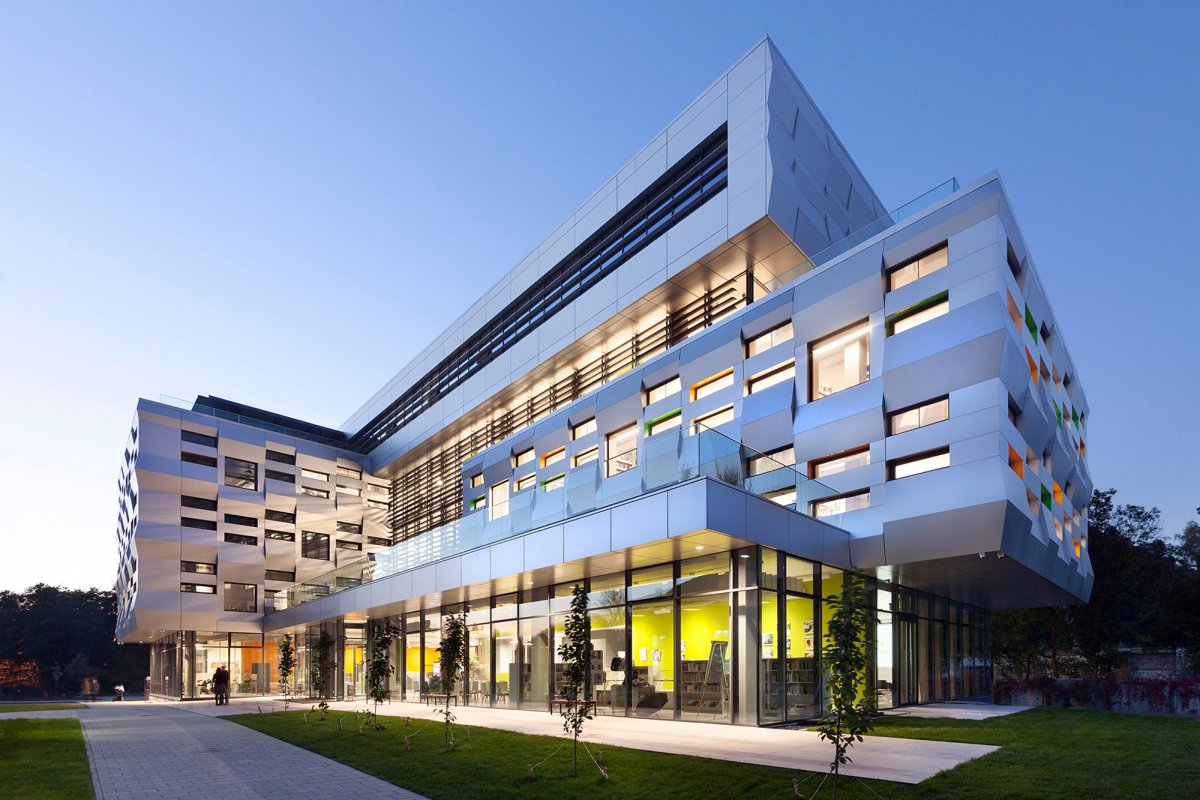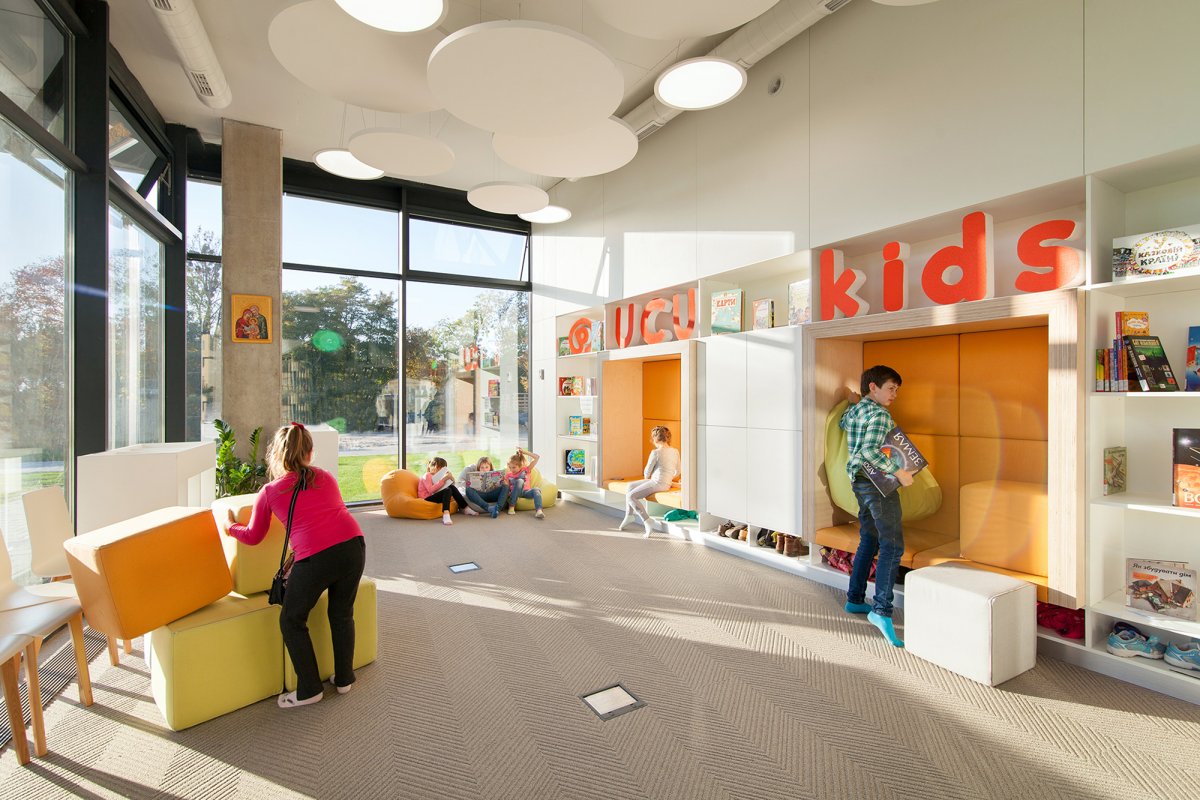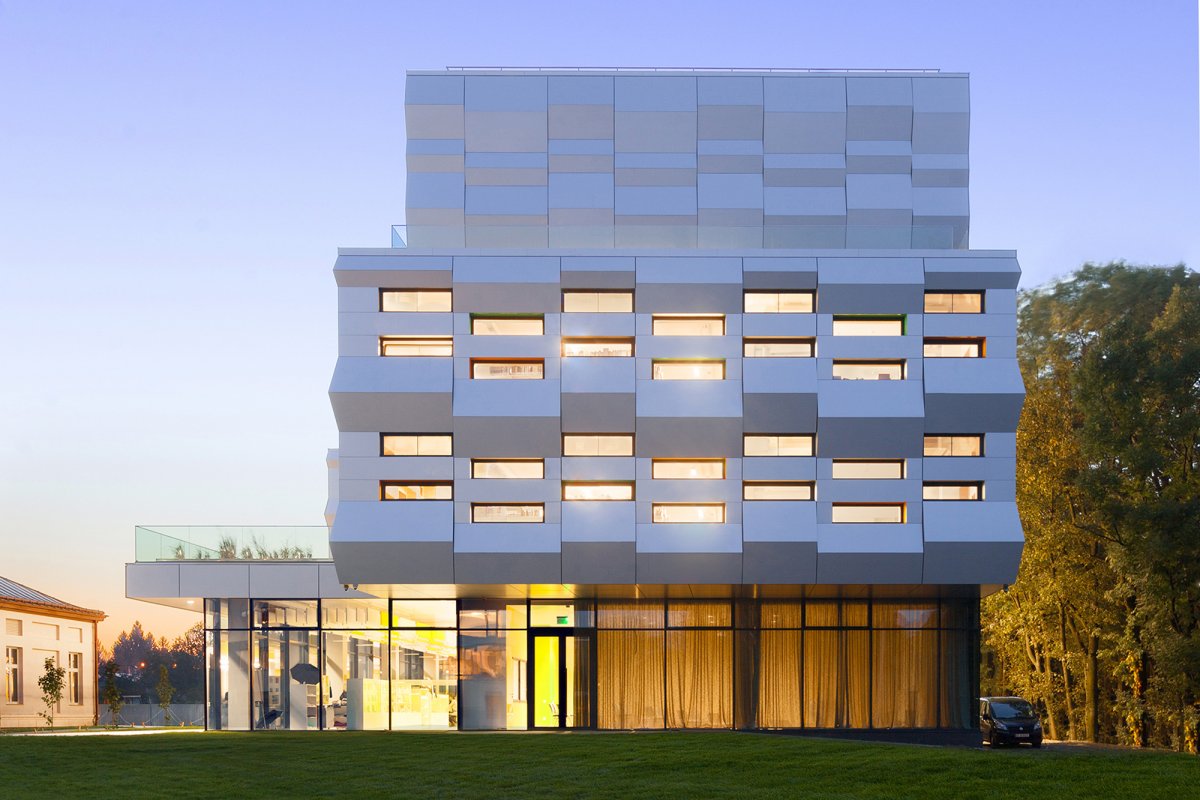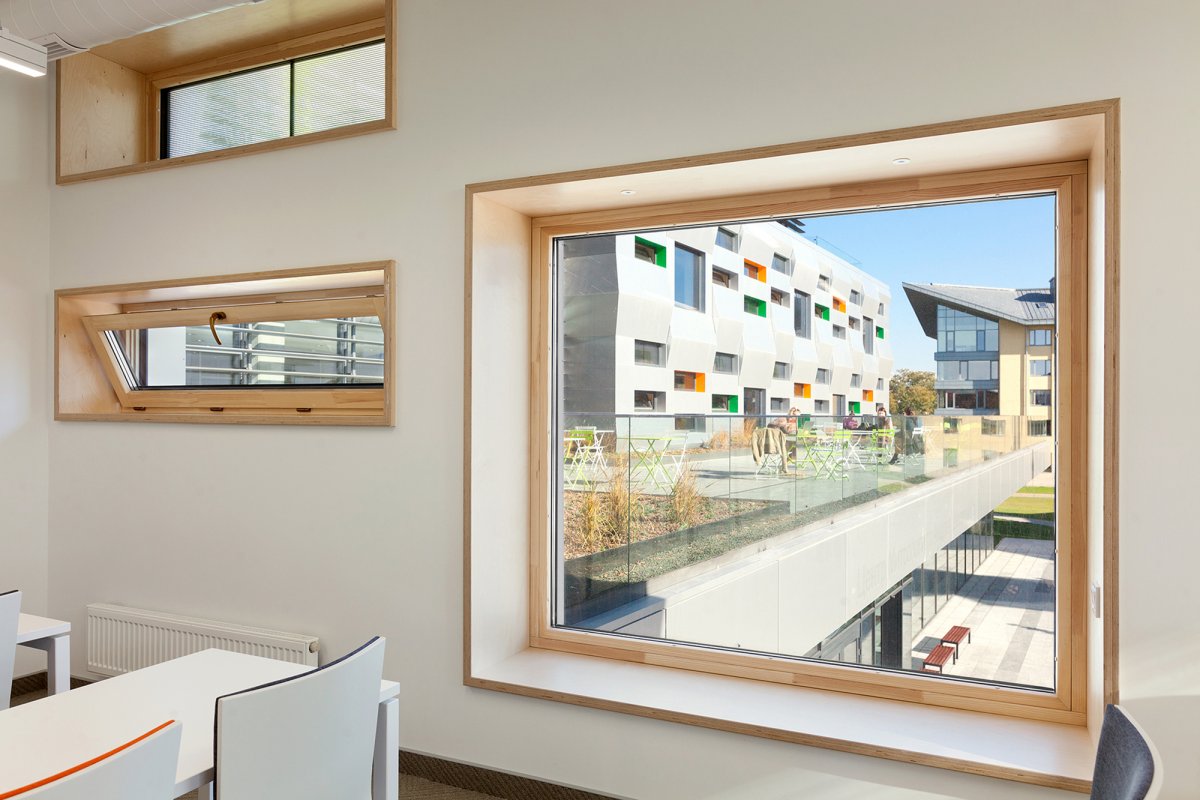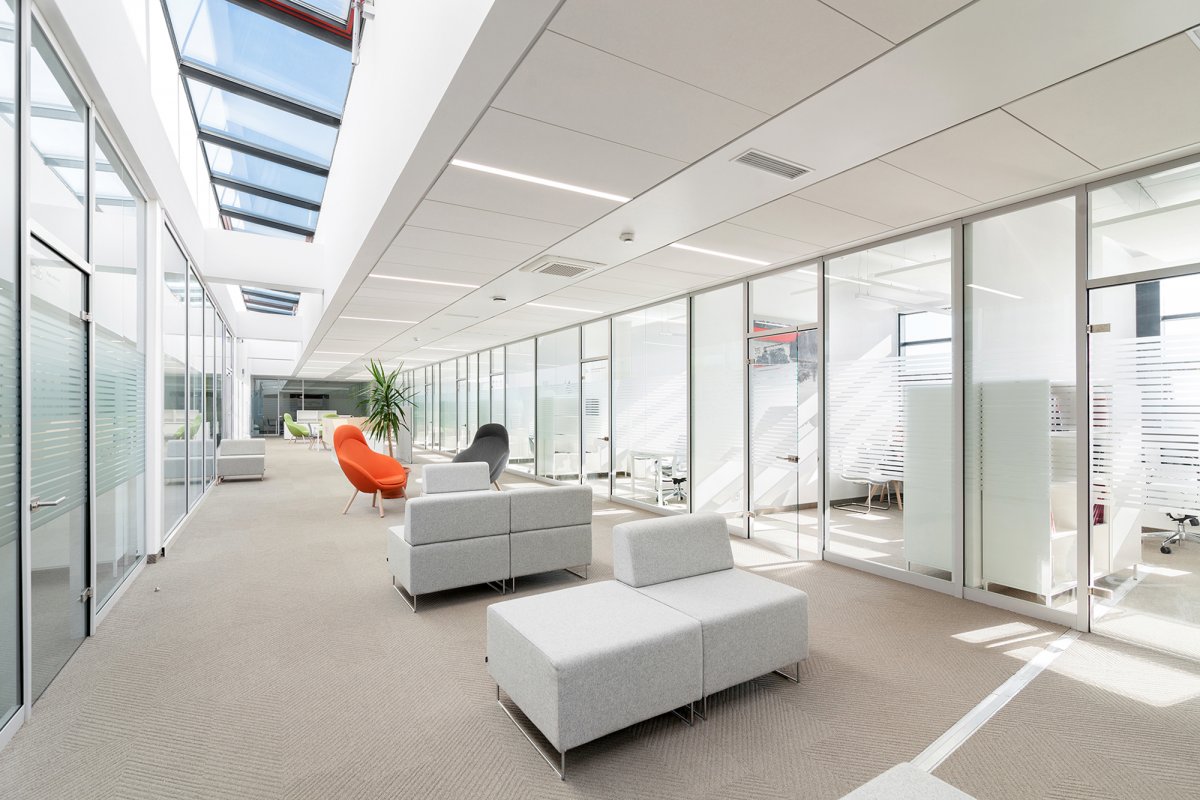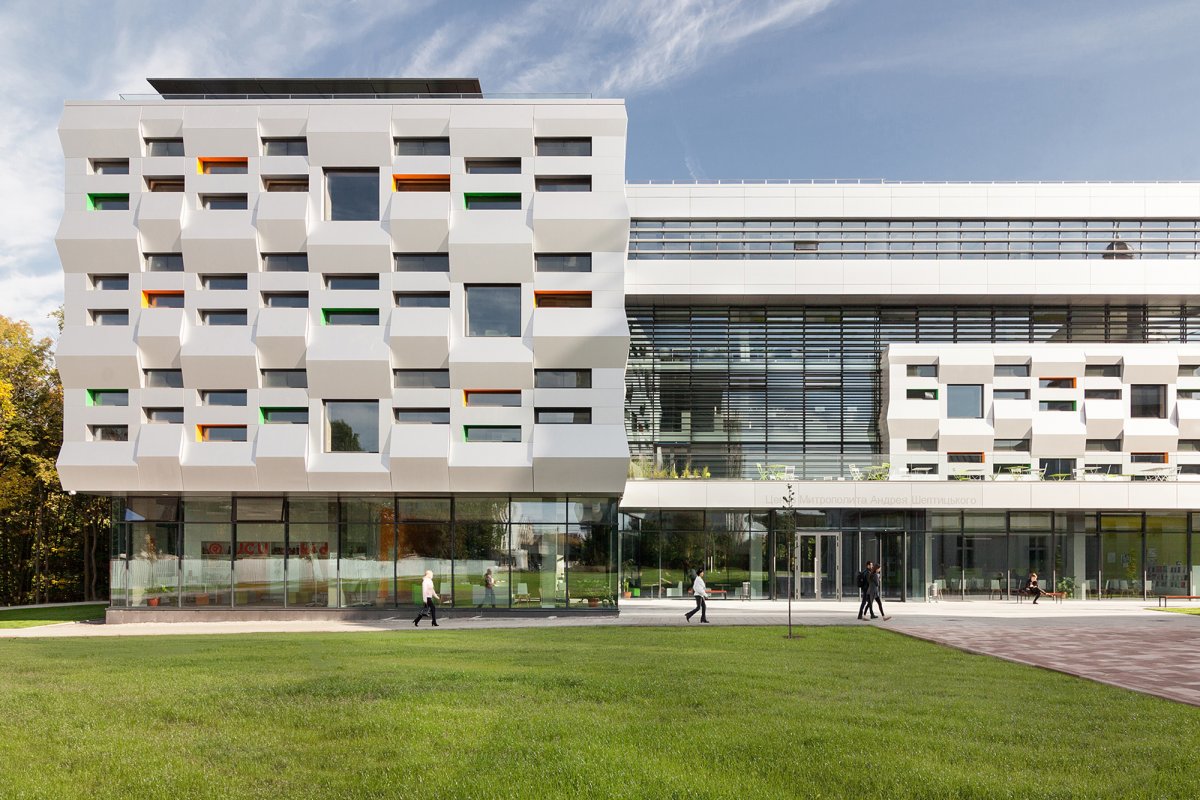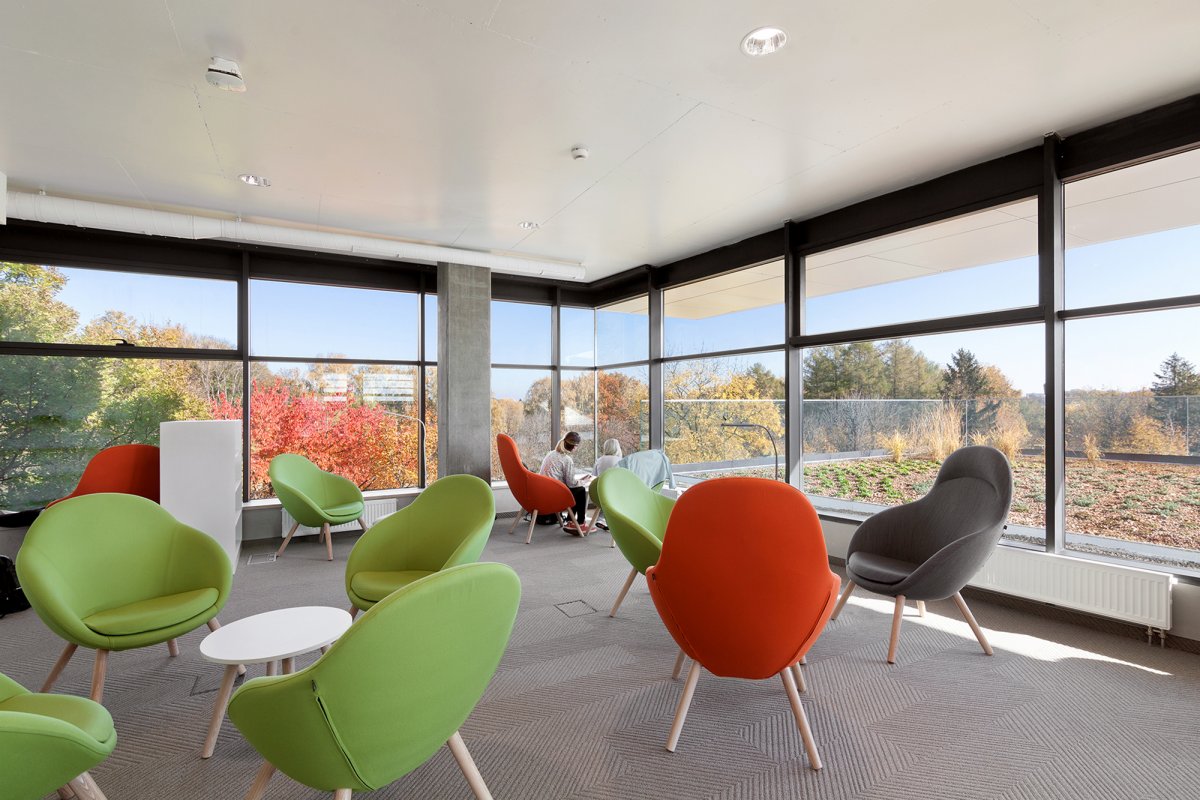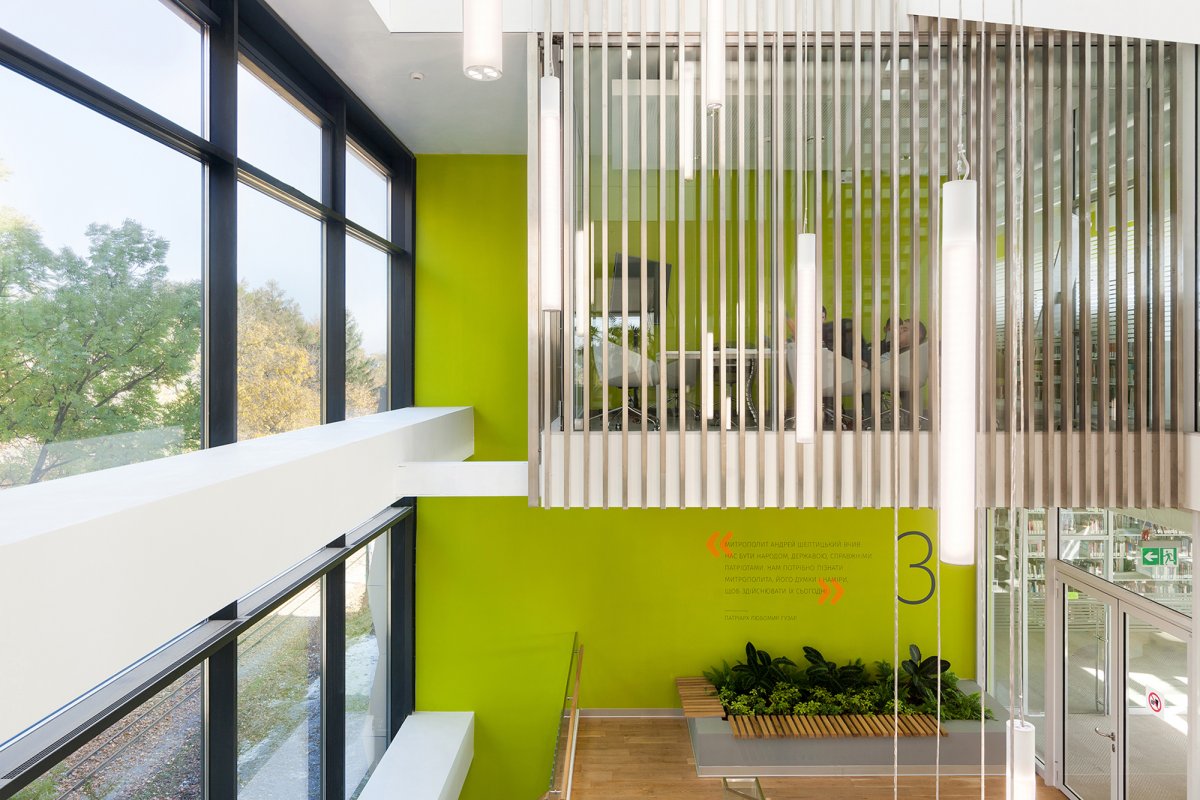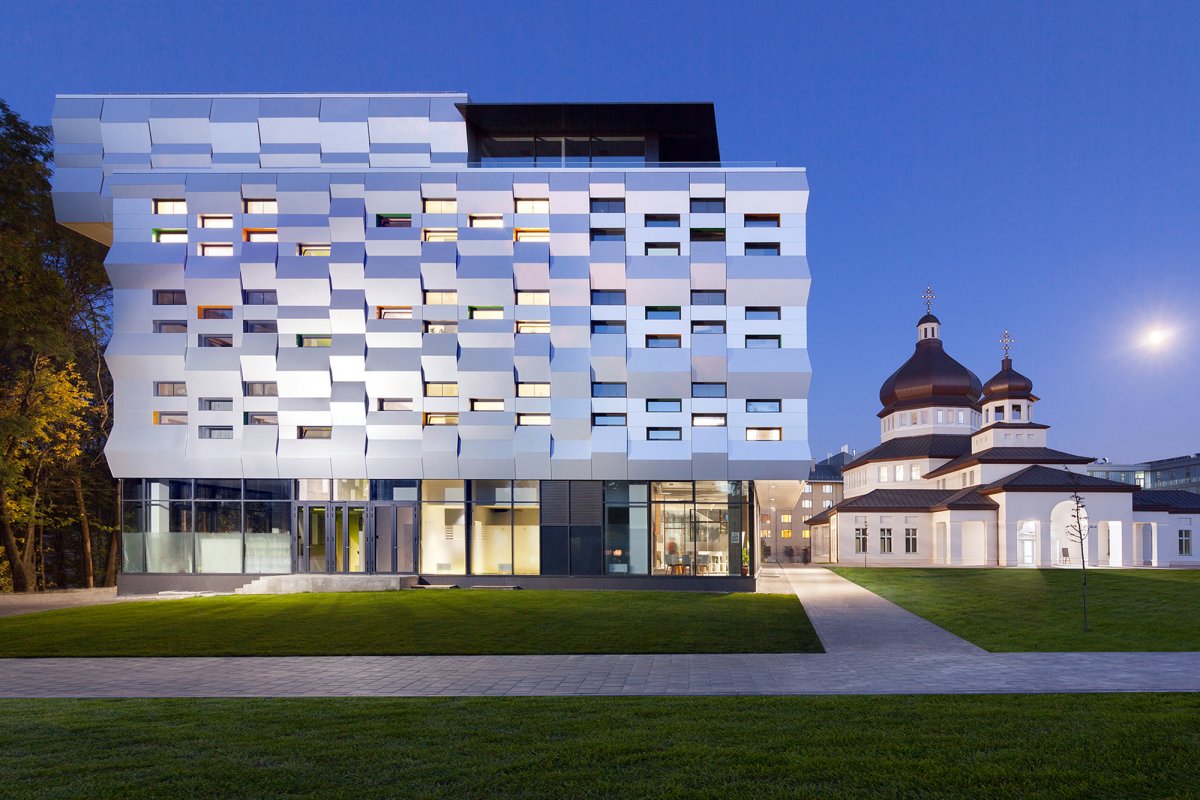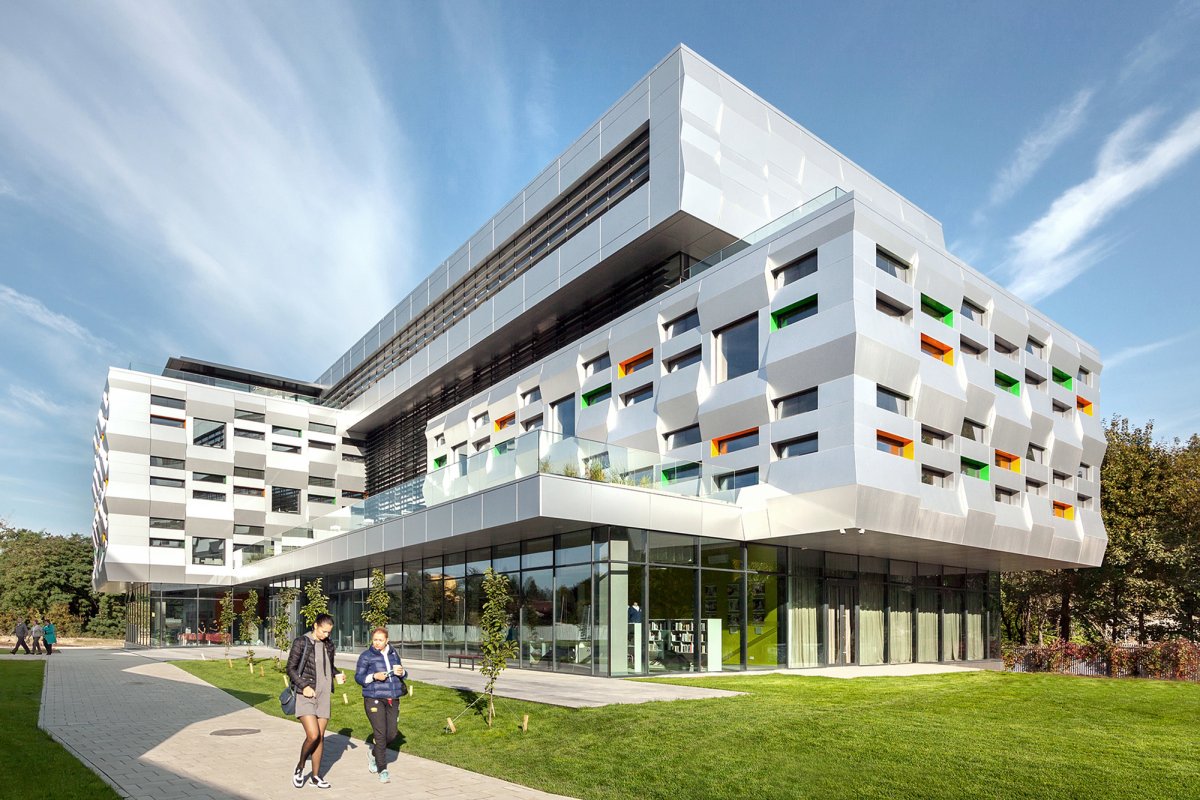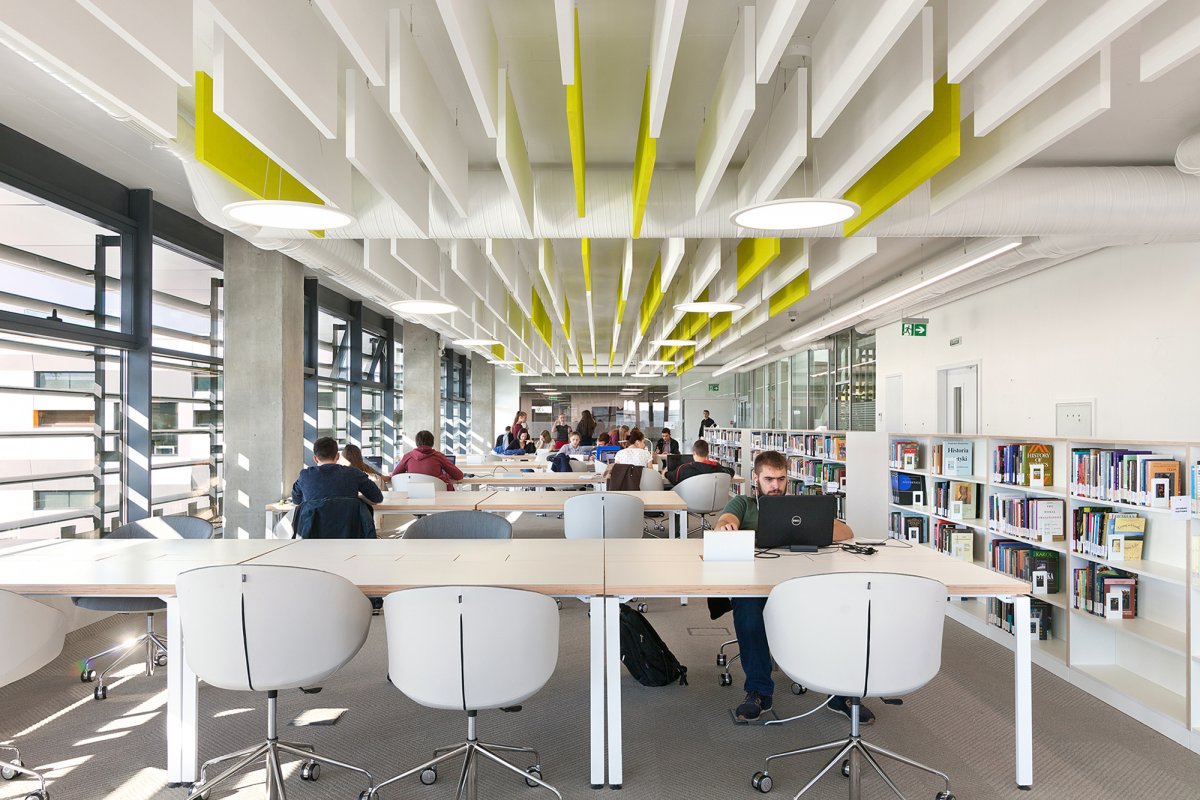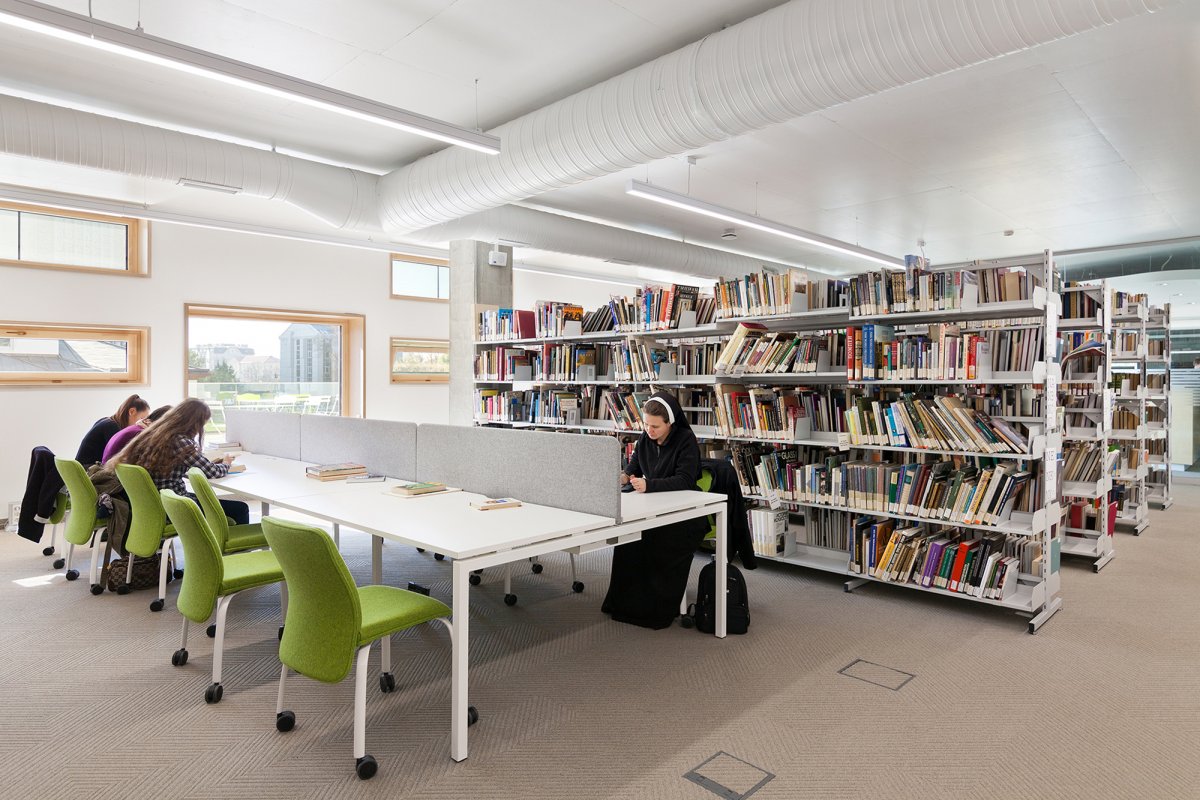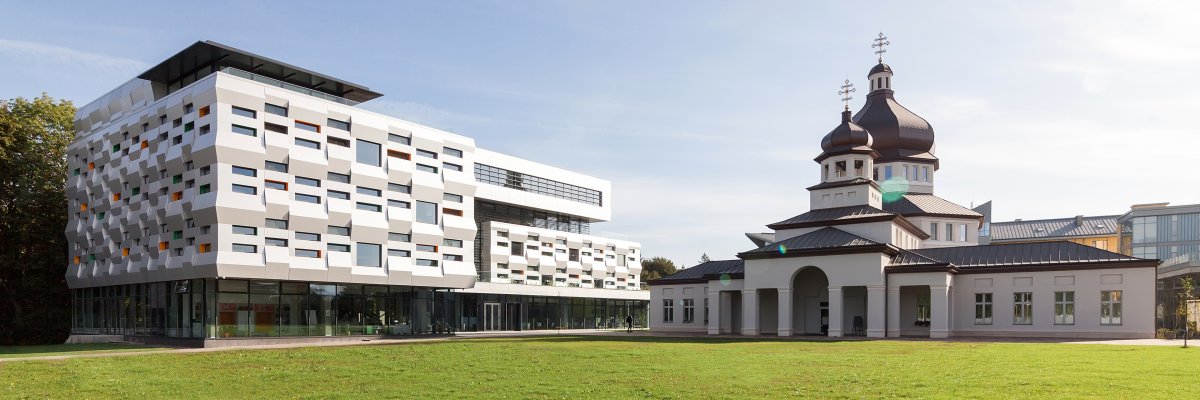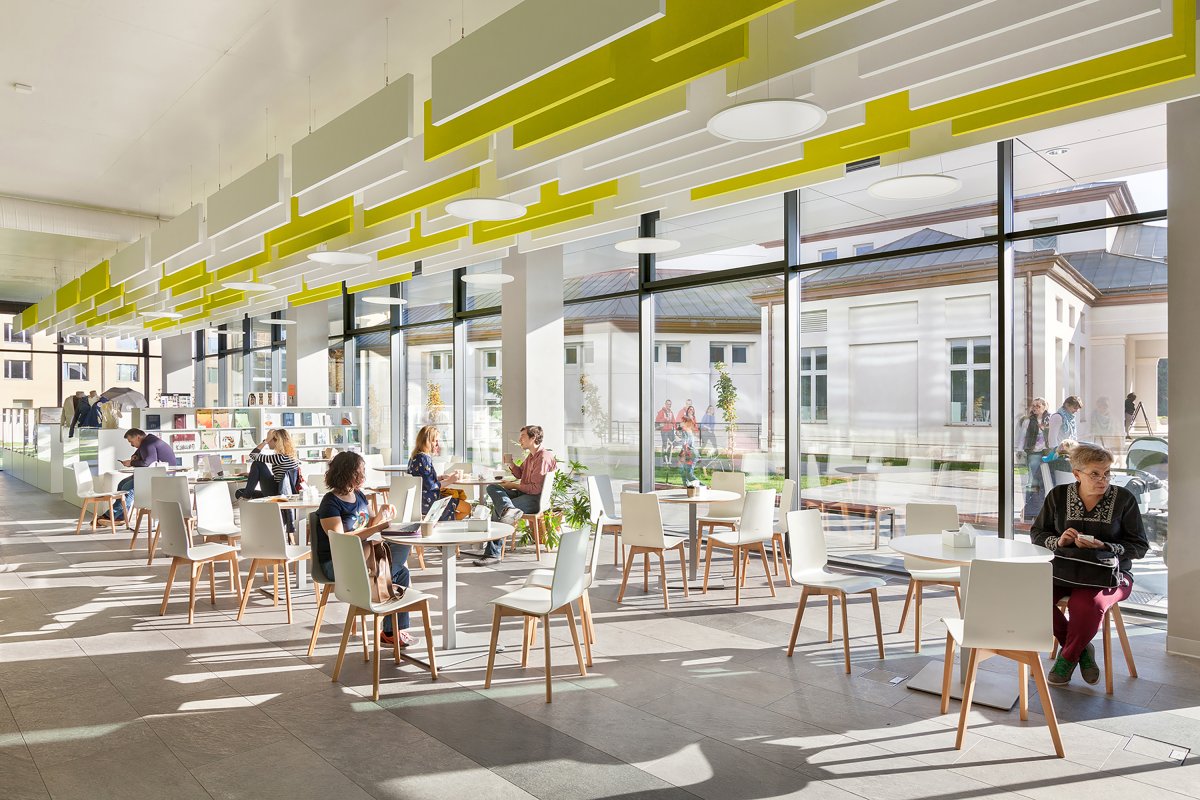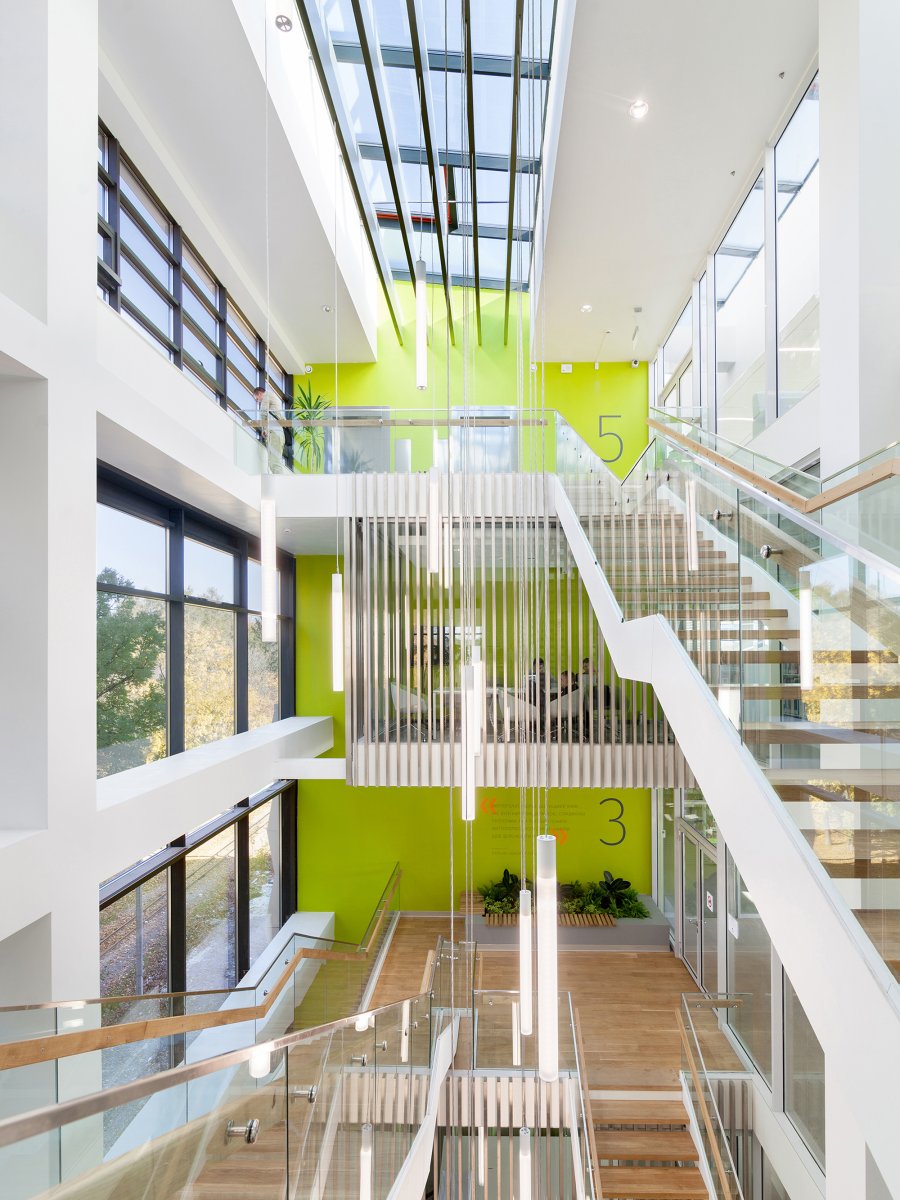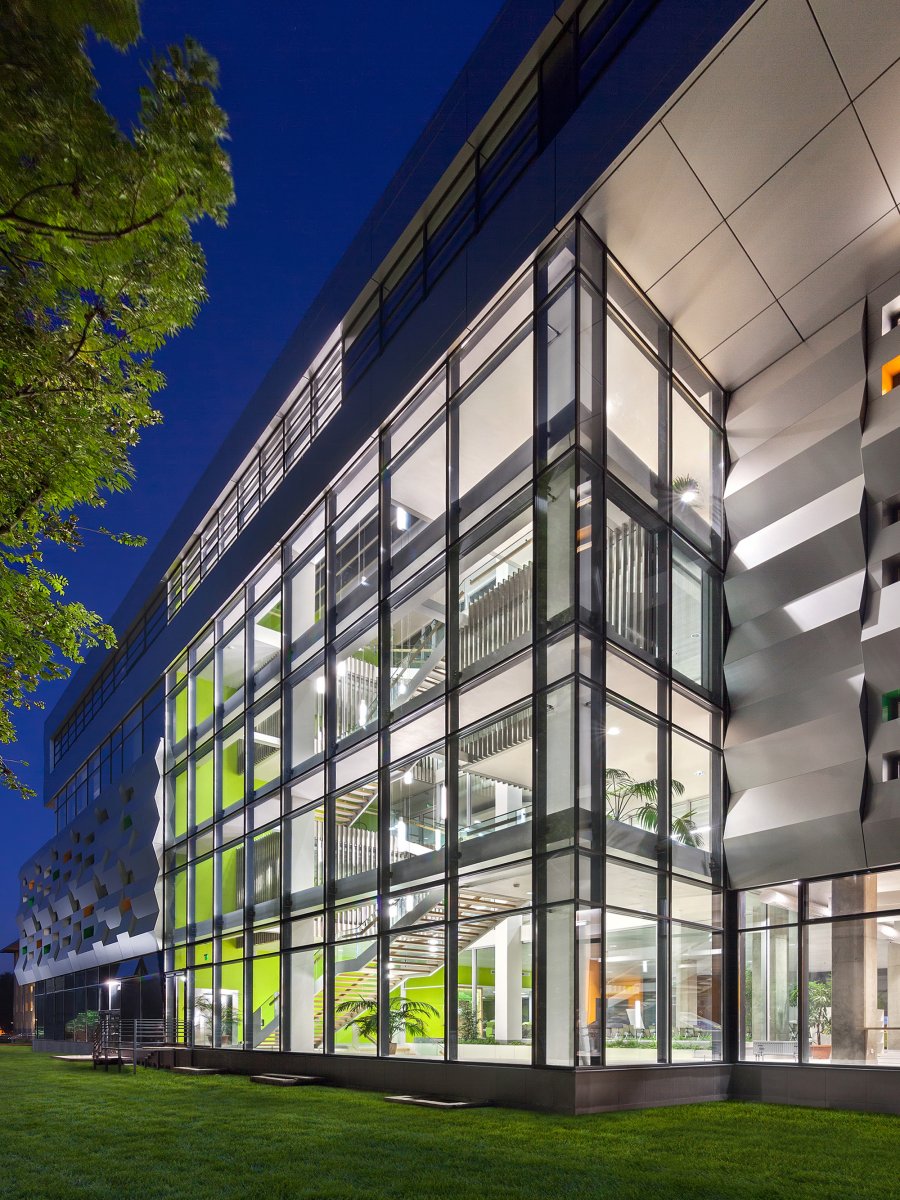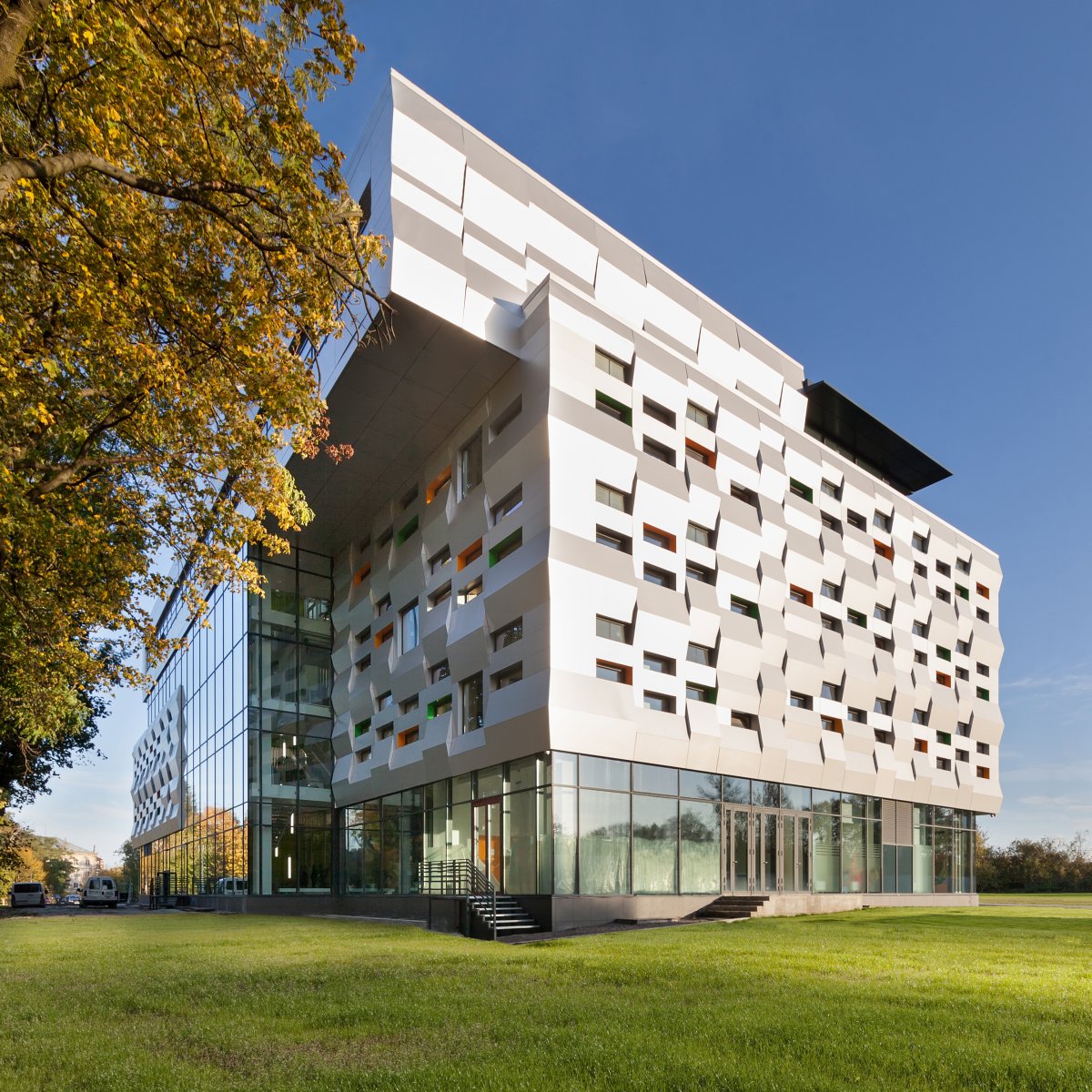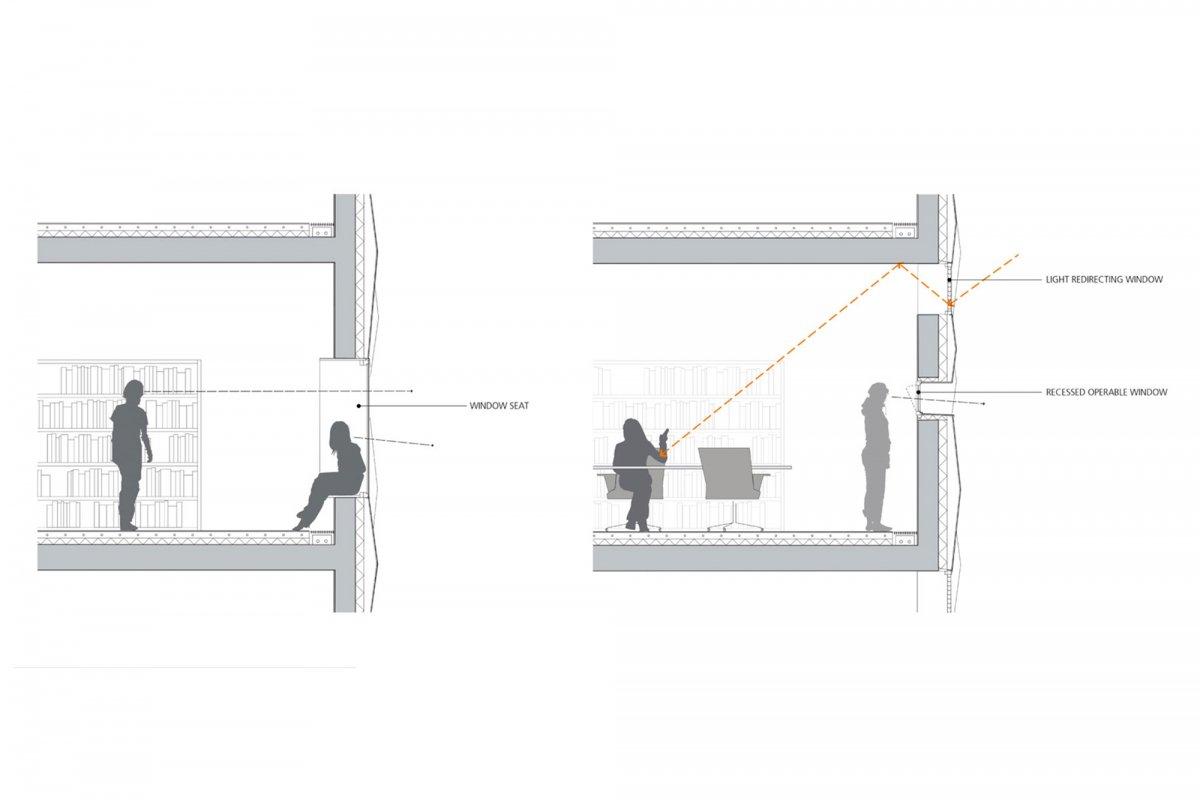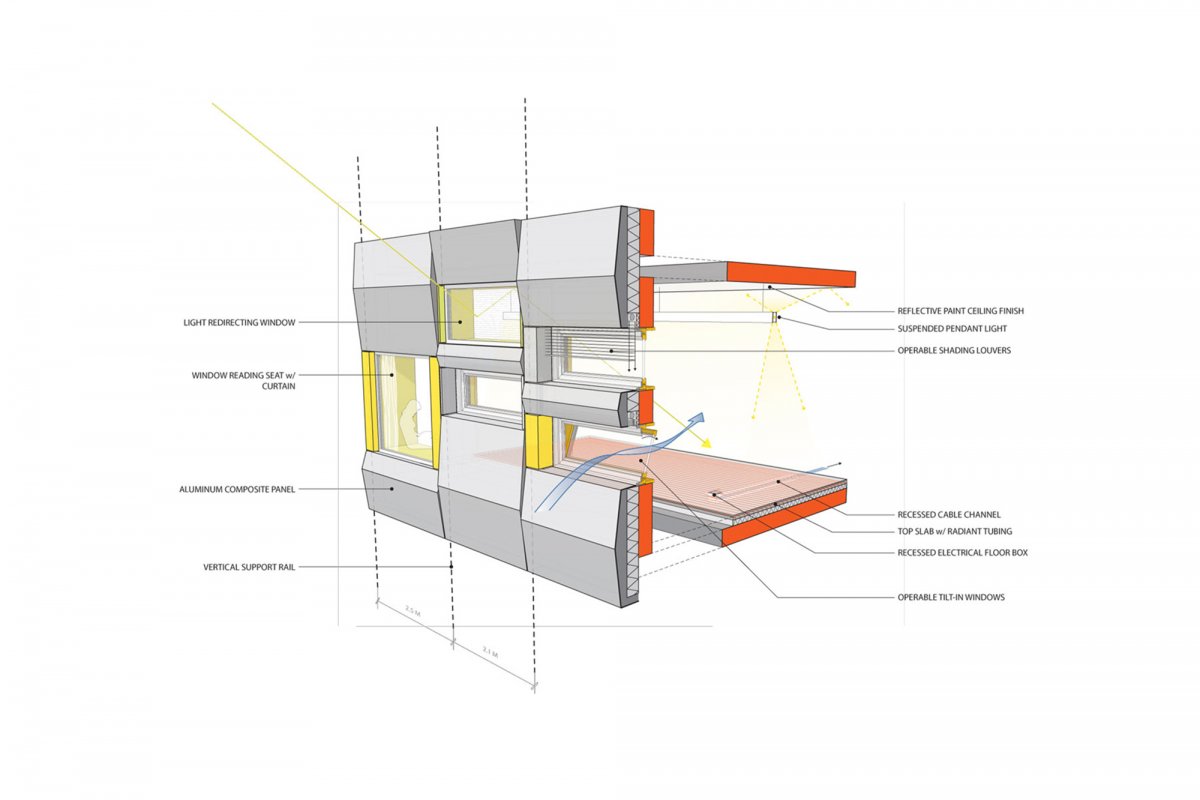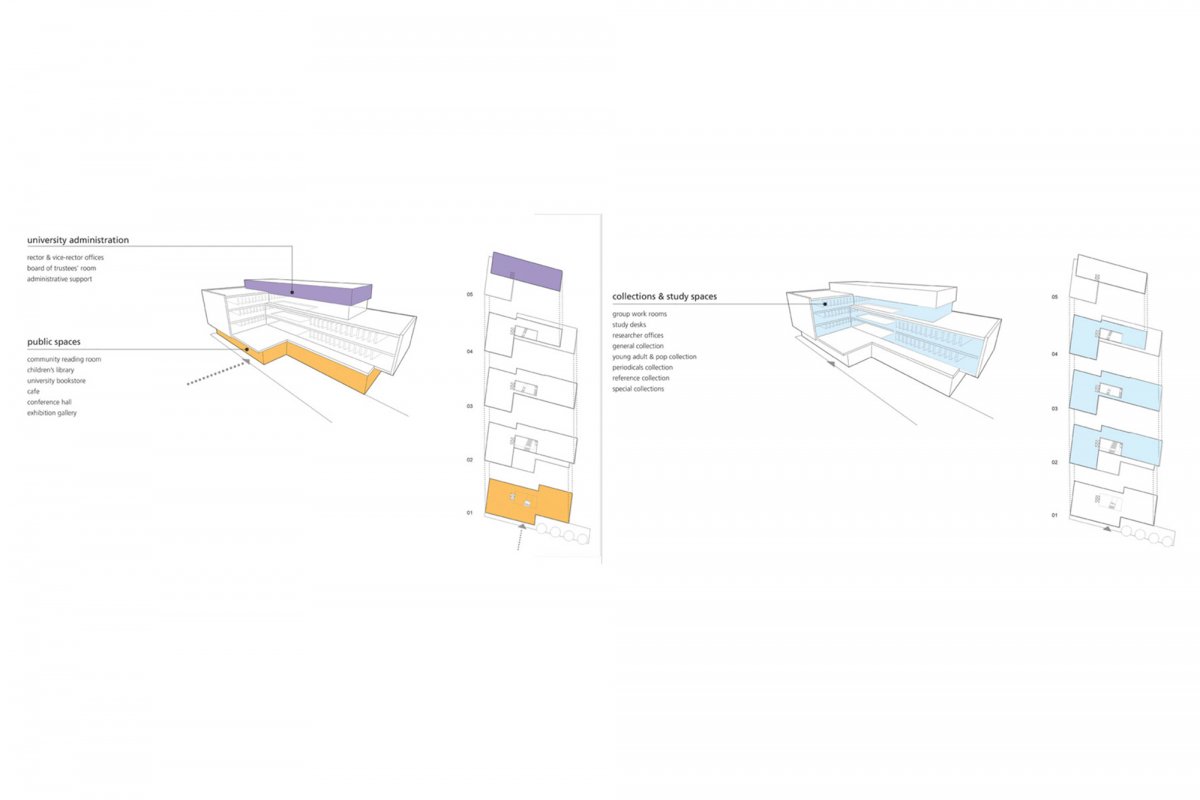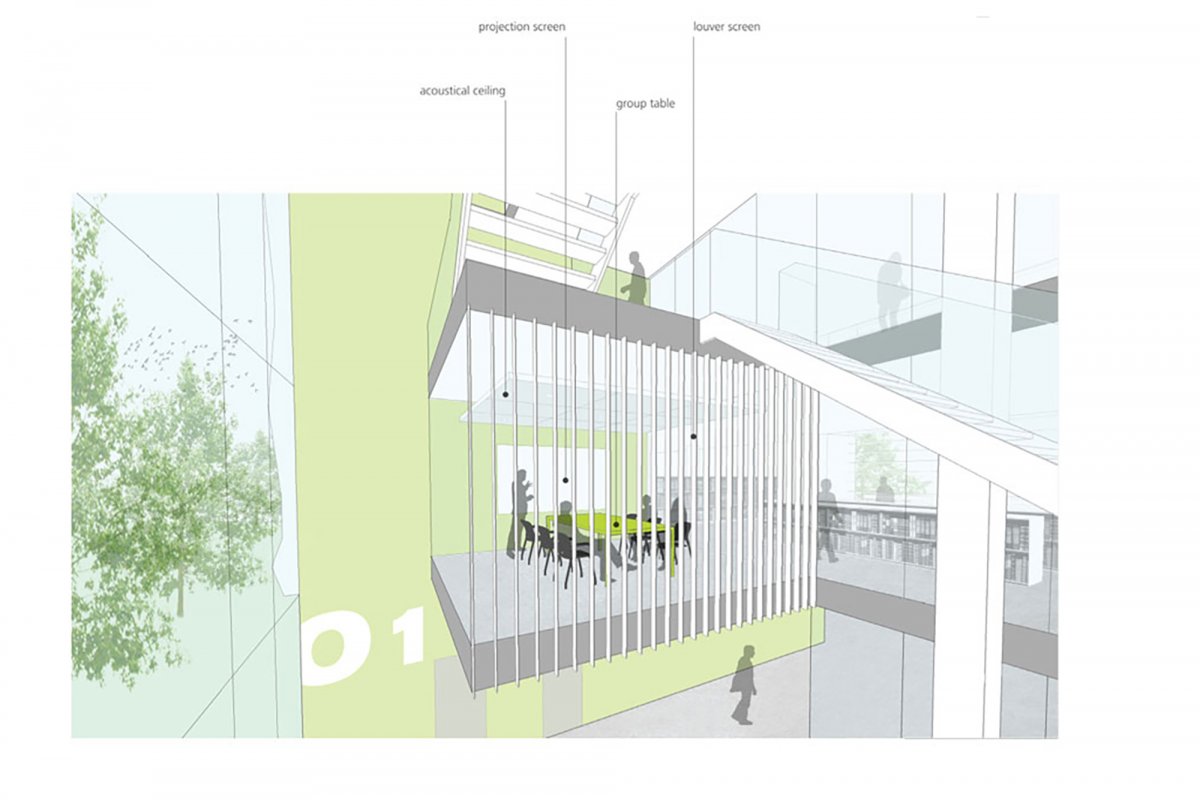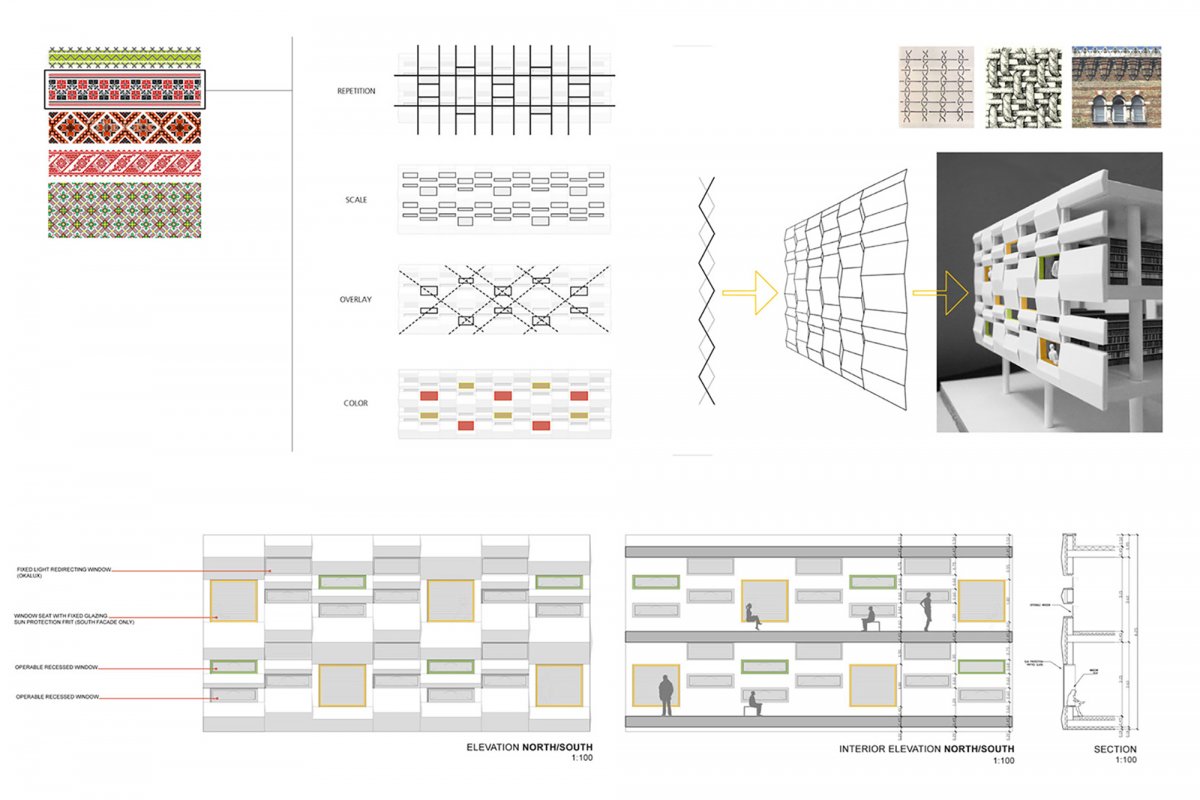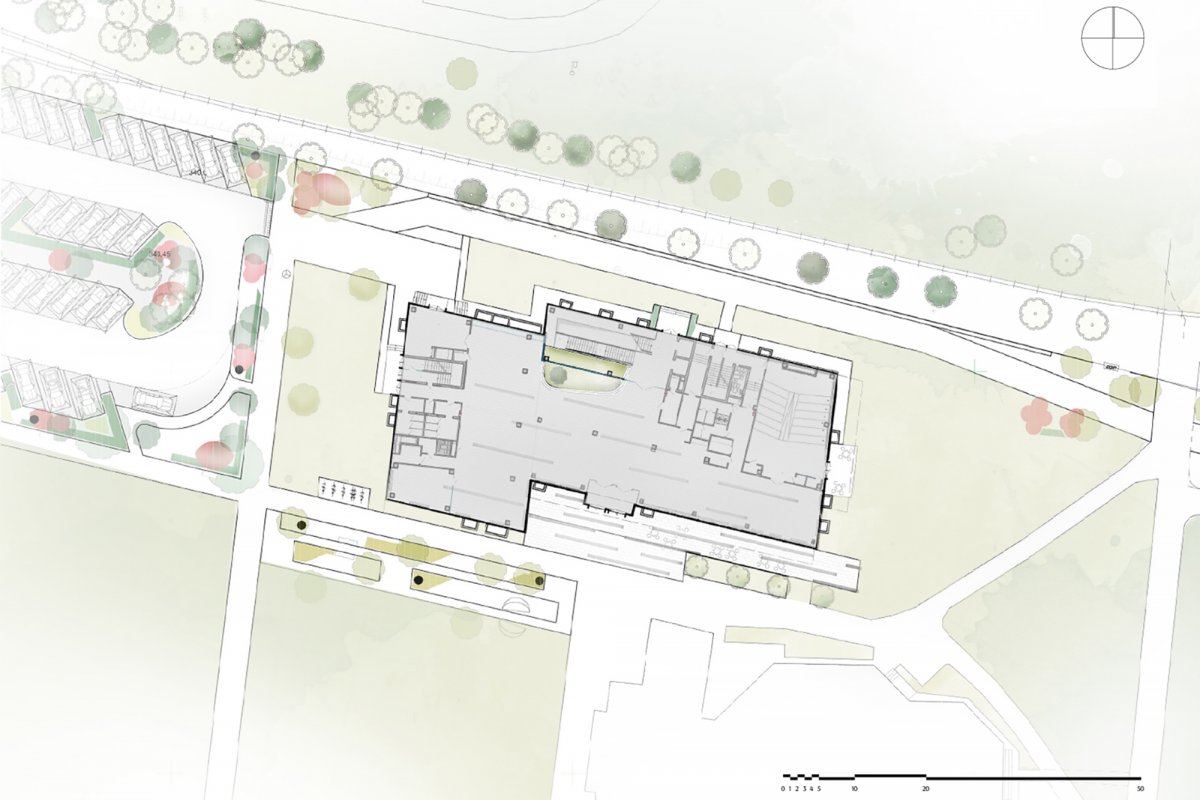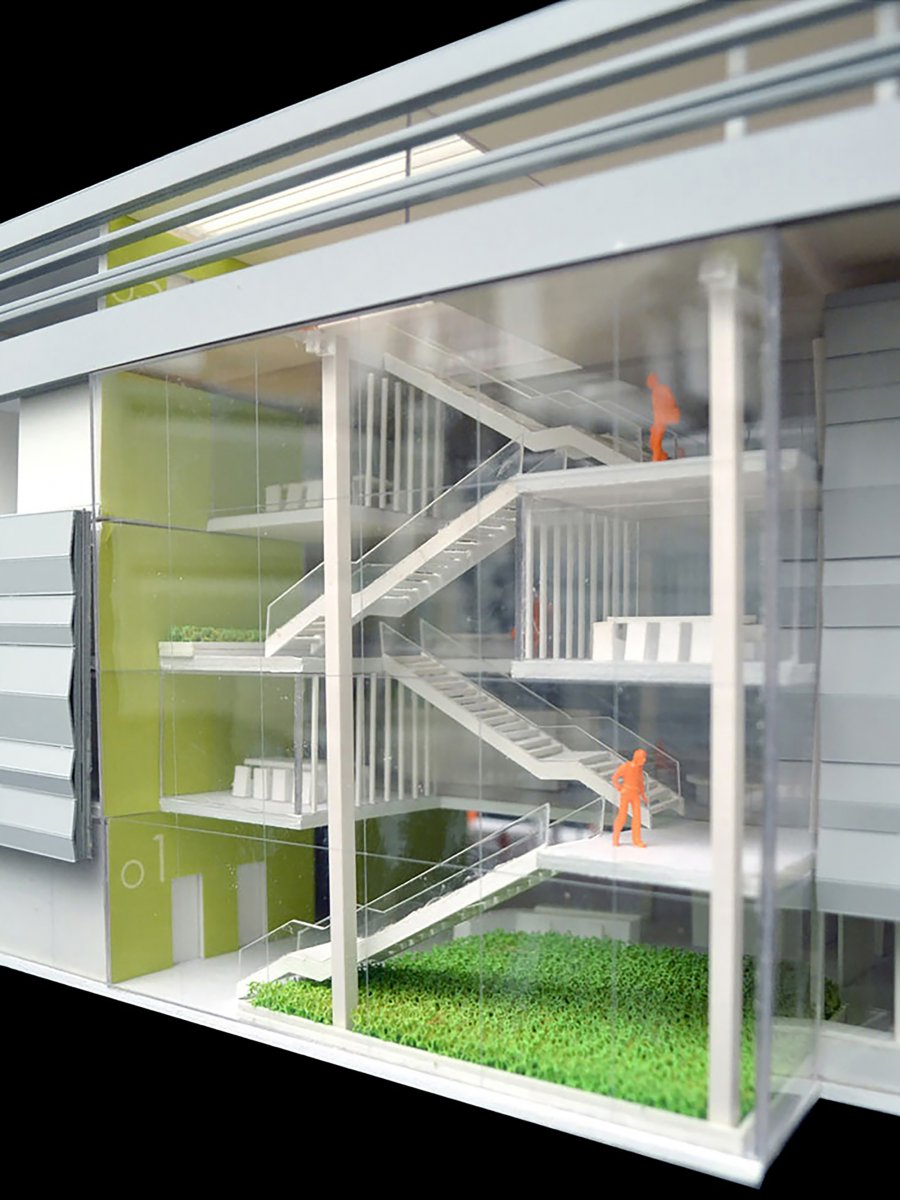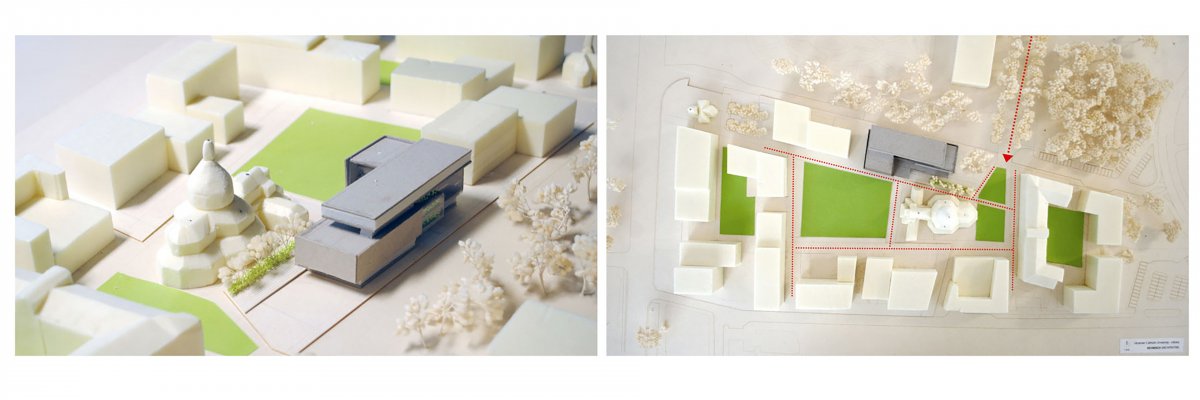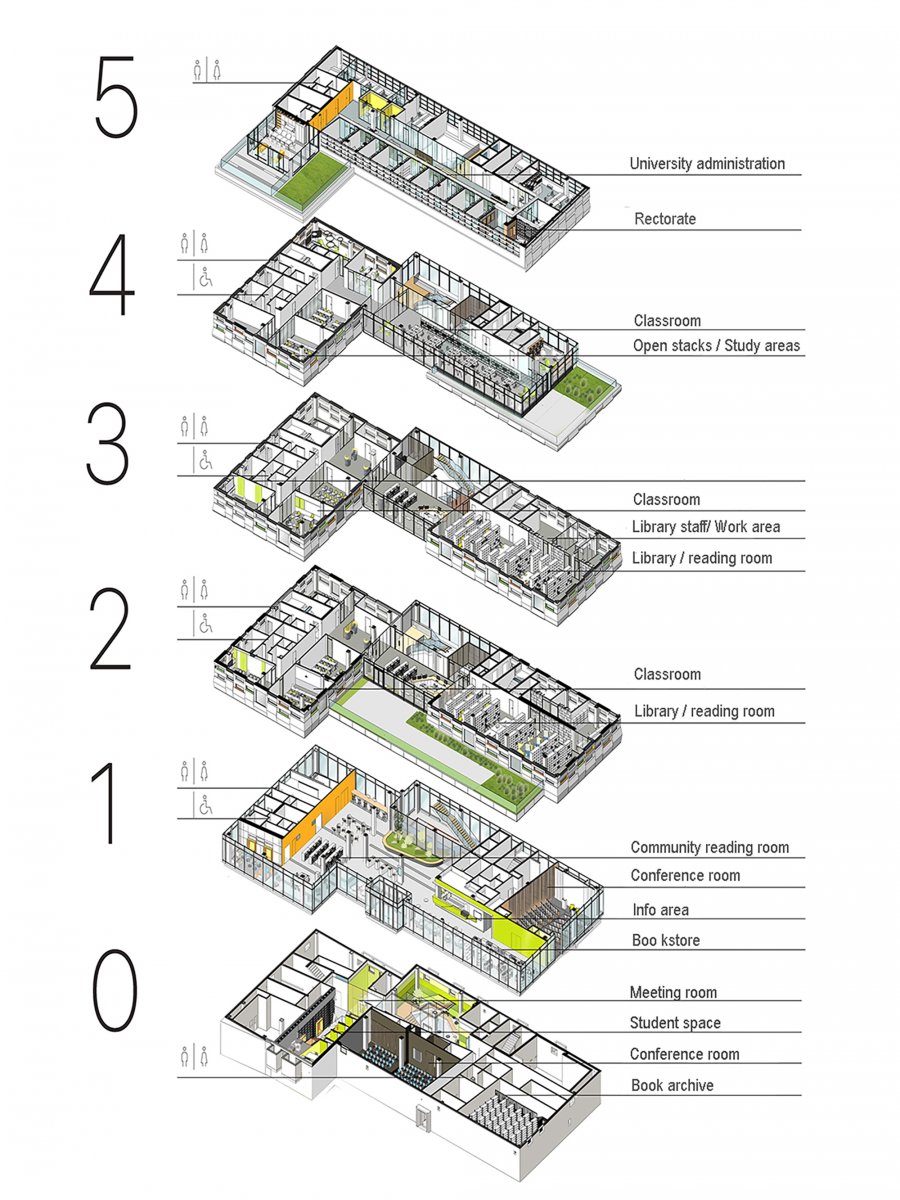Center of Metropolitan Andrey Sheptytsky, Lviv, UA
The Center of Metropolitan Andrey Sheptytsky is the newest information and resource center, which includes a library, public spaces, training facilities and the administrative premises of the Ukrainian Catholic University. One of the main slogans of the University is openness, therefore, this term became the main concept while designing the Sheptytsky Center. From an architectural point of view, the term ‘openness’ played an important role when planning the structure of the building and its interconnection with the surrounding environment. The space of the center is barrier-free, thus the events happening here are accessible to all. Over the times, libraries have become not only places to store knowledge, but also locations where students meet to exchange experience and information. Modern student libraries are also spaces for communication between students and venues for holding events. The new UCU library adapts to the changes that digital evolution has brought forward. Public and national libraries retain their function of book archiving, however, even they have changed and become spaces of meeting and learning. Considering these usage patterns, the UCU library includes transformative and adaptive rooms and areas.
